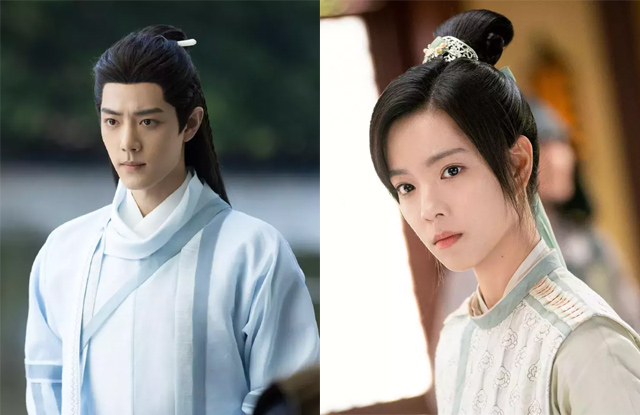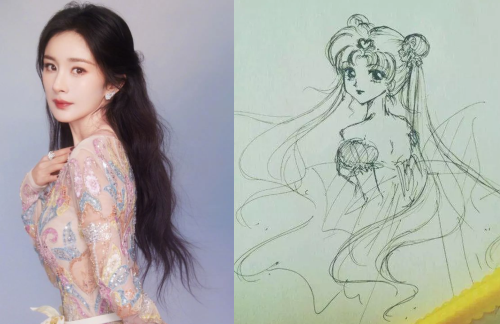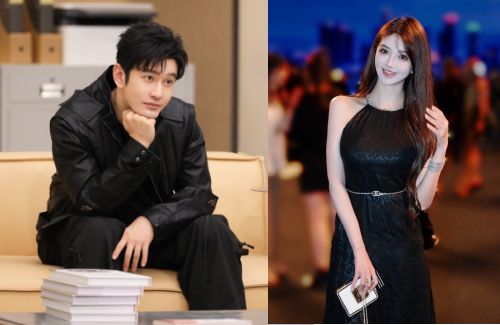Wong Jing Values Box Office Sales More Than Critical Praise

The name Wong Jing (王晶) is synonymous with Hong Kong films. Ever since the late 1980s, whether it is a movie about gambling, triads, comedy or girls, the chubby and small-eyed director only has one motive in mind when making his films – to bring entertainment to the viewers. Wong Jing has over 200 titles to his credit and one of Hong Kong’s most commercially successful film makers. Wong Jing values box office figures more so than praise and reviews from the movie critics.
For his latest project, The Last Tycoon <大上海>, Wong Jing was able to convince both Chow Yun Fat (周润发) and Huang Xiaoming (黄晓明) to star in the film. Wong Jing said, “Huang Xiaoming played the role of ‘Hui Man Keung’ in The Bund <上海灘> before and I know the audiences like him. For an established actor like Chow Yun Fat, money is the least of his concerns. If the script is good enough, that’s already winning half the battle.”
Wong Jing shares that the box office figures are more important to him that critics’ reviews. “The review only comes from one person or two persons and there are no standards to base their feedback on. Today someone can write that the movie Back to 1942 <一九四二> isn’t good because the online reviews are poor, but what does that really represent?”
Wong Jing continued, “Box office figures can give you an indication of how the audiences feel about your work. Movie goers aren’t dumb – they won’t pay to watch a movie that isn’t good – especially not 3 times! People vote with their money when they go to purchase the movie ticket, not based on what one movie critic said.”
As one of the most influential directors in the Hong Kong film industry, Wong Jing will always be compared to the other directors of the same caliber. When asked how he felt about fellow directors Andrew Lau (劉偉強) and Peter Chan (陳可辛), Wong Jing said the following:
“What I like about the Hong Kong film industry is the tight inner circle and a positive attitude amongst everyone, so it’s not a competitive environment, but rather a mutually encouraging one. Andrew Lau’s The Guillotines <血滴子> and my film, The Last Tycoon were showing at the same time. All the films did fairly well at the box office so it was a win-win situation for everyone.
“Everyone goes through ups-and-downs throughout their lives, so I don’t think it’s fair to compare us as directors and our journey. For example, Tsui Hark (徐克) experienced his peak twice, once in the 1990s and again in 2010. For me, it was during the 1990s as well. But everyone goes through a rough period too. Peter Chan (陳可辛) did really well in 2000, but maybe he’s not doing as well now. So everyone goes through these different phases in their lives, based on the current market conditions and many external factors.”
Wong Jing added, “I won’t pressure myself to go a certain direction by a certain period of time, because the market is always changing. I go with the flow whenever I get inspired. We’re no longer little kids that says things like, ‘I want to be a police officer when I grow up’. We have to look at the market conditions and needs and find a niche topic to focus on for a film. It’s not like ‘Aiya! I want to try something new’. Never.”
Source: QQ.com
This article is written by Natalie for JayneStars.com.











OK, firstly, Wong Jing hasn’t made a good movie since 1989 (God of Gamblers). His portfolio is marred by lazy screenwriting and quick-sell movies made on the basis of appealing to people via rehashes (Color of Loyalty and the new YnD) and Cat III.
Secondly, he’s right about the HK movie market being non-competitive. You can count the number of directors right now on one or two hands. And just as well, the population of HK is 7 million, the demand isn’t high, and neither is the supply.
What does this mean? It means that Wong Jing can keep churning out his crappy movies, and yes, people will watch his crap, just because there’s just not many films to choose from.
Does this make him a good director? Nope.
If he worked in Hollywood, he’d be broke.
Does this make HK-moviegoers dumb? Well, I don’t know, but they are accountable for keeping WJ in business.
HK market is niche market, you can see Jayne’s box office, you see those China market, it is incredible. Ticket in China is quite expensive as well.
I believe Wong Jing is well respected within his peers.
Wong Jing did not claim to be a good just a prolific. He is in it for the $$$ where any awards are icing on the cake. Kenneth Ma feels the same, $$$ 1st followed by any wards. Awards can not pay for the mortgage or feed you.
should read…did not claim to be a good one just a prolific one.
Crap, good in soft porn movie
anything can sell nowadays especially if it’s marketed with mass appeal. I doubt Wong Jing will be respected or remembered in the future, unlike Wong Kar Wai,Ang Lee and Zhang Yimou whos work has been culturally, historically, or aesthetically significant and would still be studied by scholars and students even after their death, their legacy will go on. Wong Jing however will slowly be forgotten after his death, as there will be another director who will overtake him as the box office sellout, and as times goes on he’ll be overlooked and people will only be able to recall him as the person who made films for the sake of money.
Wong Jing’s “legacy” has already been established by God of Gamblers and the “Lucky stars” movies. He also built stars like Chingmy Yau and Andy Lau. And also built up people working behind the scenes like cinematographers and writers and stuff.
But that’s it. The rest is just money and cheap knock-offs like Kung Fu Mahjong and Future X Cops. Jackie Chan swore to never work with him again after City Hunter.
He’s got the most salacious expression.
If that were the case, than he must be crying over spilled milk as his “Last Tycoon” sucked wind at the box office in its opening week in China. It barely made US$3 million.
I don’t think people can judge a success of a movie by what it made in China screening. There are so much restriction in China that director/producer has to cut this and that out of a movie to make it to the screen that the original story line probably got loss in the process. They don’t seem to have this restriction for foreign (hollywood) films.
A film wins an award in Cannes and it’ll become an instant hit in China… regardless if anyone could understand the film or not…
Personally a movie is just entertainment. Watch it for a laugh and enjoy it with friends. I don’t want to analysis it for days on end on what the movie was about after watching it.